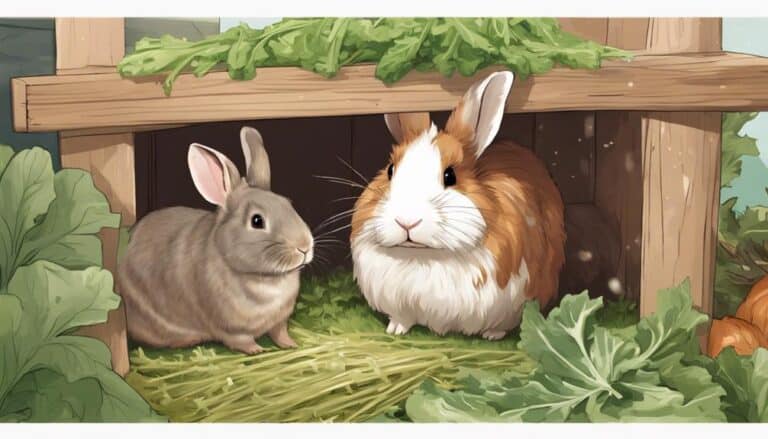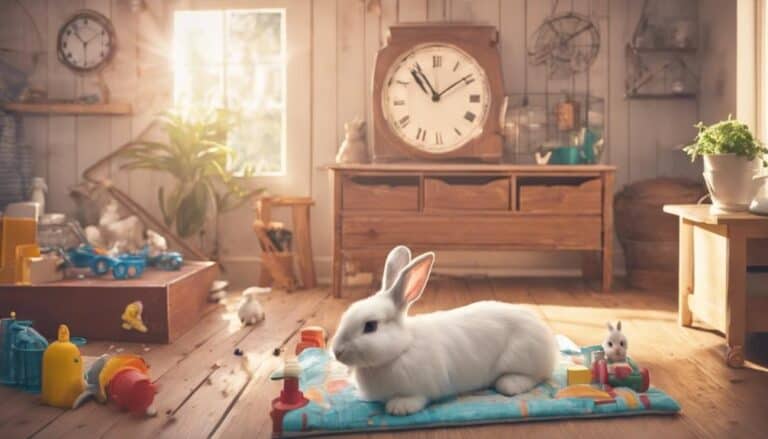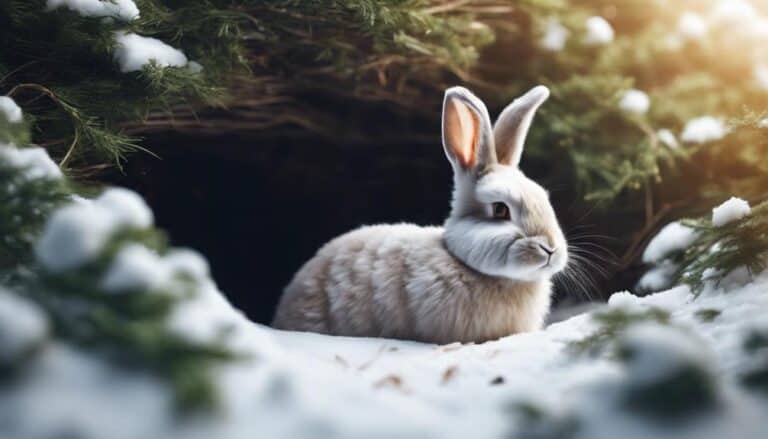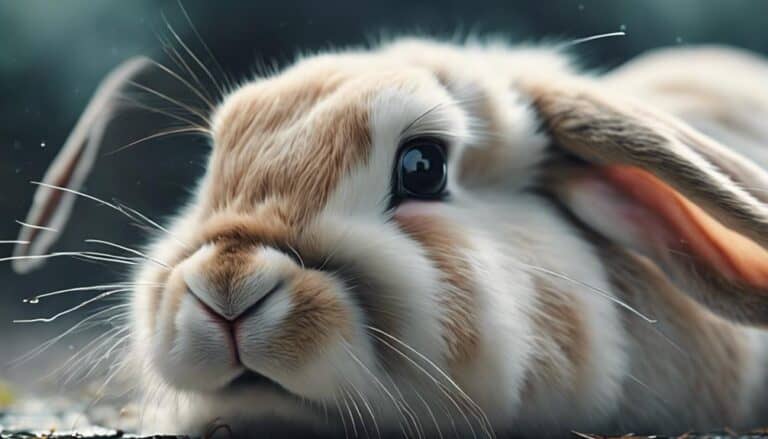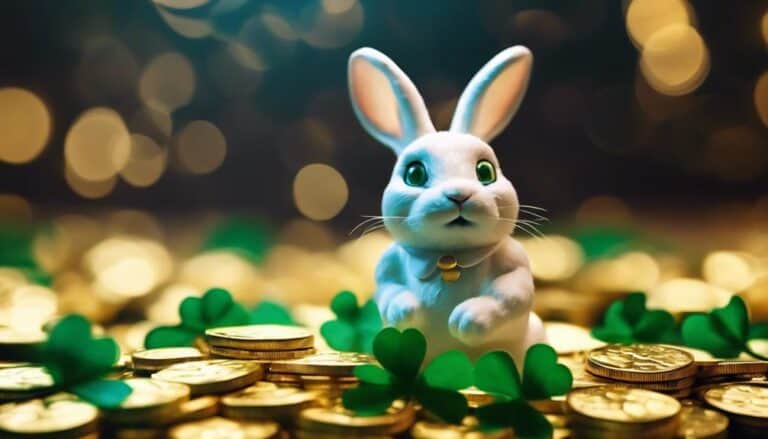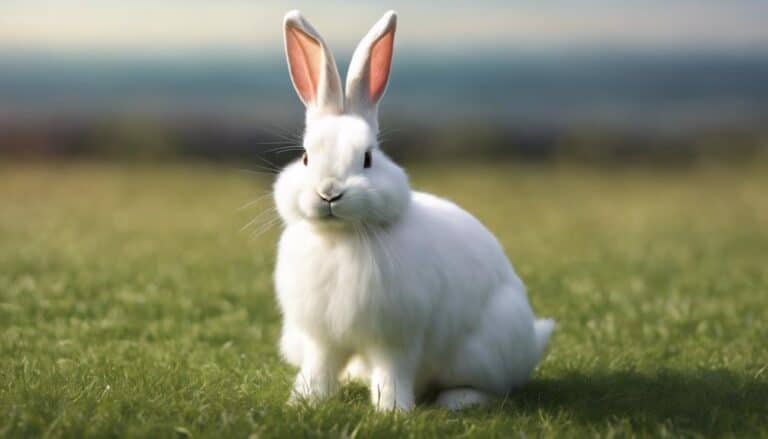Have you ever wondered if bunnies experience a sense of longing when separated from their owners?
The bond between rabbits and their humans goes beyond mere companionship, delving into the world of emotional connection.
Understanding the depth of this relationship can shed light on the behaviors these furry creatures exhibit when apart from their beloved caregivers.
Contents
- 1 Key Takeaways
- 2 Bunny Attachment to Owners
- 3 Signs of Bunny Longing
- 4 Rabbit Emotional Responses
- 5 Understanding Bunny Behavior
- 6 Bunny Bonding With Humans
- 7 Bunny Communication Cues
- 8 Strategies for Bunny Separation
- 9 Frequently Asked Questions
- 10 Can Bunnies Feel Emotions and Attachment Toward Their Owners?
- 11 Conclusion
Key Takeaways
- Rabbits display emotional bonding behaviors towards their owners.
- Signs of longing include affectionate gestures and destructive behaviors.
- Understanding rabbit emotional responses helps address their needs for connection.
- Rabbits show signs of missing owners through various behaviors like over-grooming and pacing.
Bunny Attachment to Owners
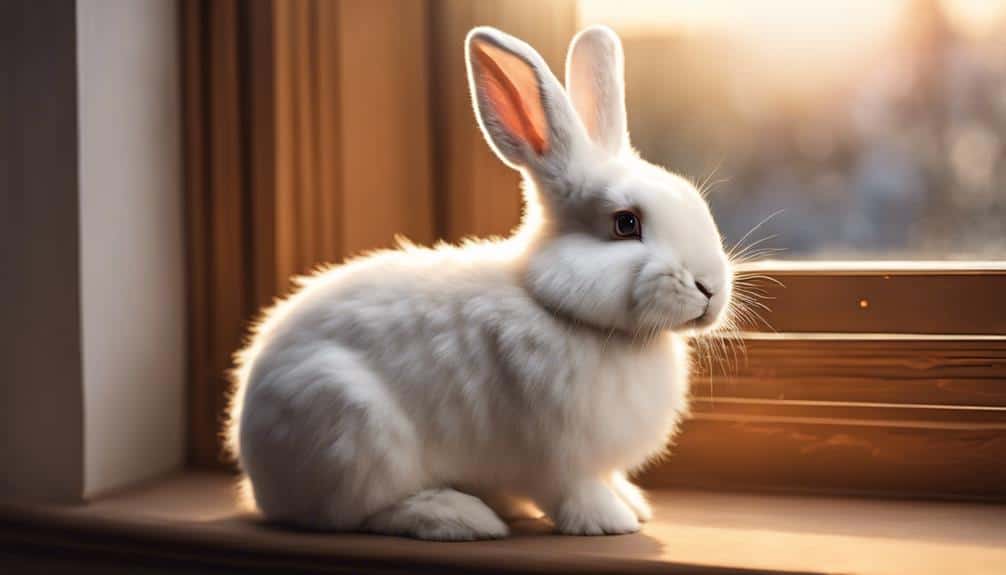
Rabbits form strong attachments to their owners, recognizing them swiftly through sight, sound, and smell. These intelligent creatures not only bond emotionally but also exhibit behaviors that showcase their attachment. Your rabbit may actively seek your presence, displaying signs of joy upon your return and even requesting attention through nudges or gentle hops.
When separated, some rabbits may appear lonely or less active, indicating a longing for your company. Such behaviors highlight the depth of emotional bonding rabbits are capable of forming with their owners. By understanding your rabbit's smart and sensitive nature, you can nurture this attachment by spending quality time together, engaging in interactive play, and providing a safe and comforting environment.
Signs of Bunny Longing
When observing a bunny's behavior, signs of longing for their owner may manifest in various ways, including both affectionate gestures and destructive actions. Here are some signs that your bunny might be missing you:
- Affectionate Gestures: Bunnies are social creatures that thrive on companionship. If your bunny is longing for you, they may display affection by licking, nuzzling, lying next to you, head butting, nudging, jumping, or running in circles.
- Destructive Behaviors: On the flip side, destructive behaviors like not grooming, fur pulling, thumping, chewing on the cage, nipping, circling, or pacing could indicate that your bunny is feeling lonely without you around.
- Over-Grooming: Sometimes, over-grooming can be a sign of stress or loneliness in bunnies. If your bunny is excessively grooming themselves, it might be a way for them to cope with missing your presence.
Rabbit Emotional Responses
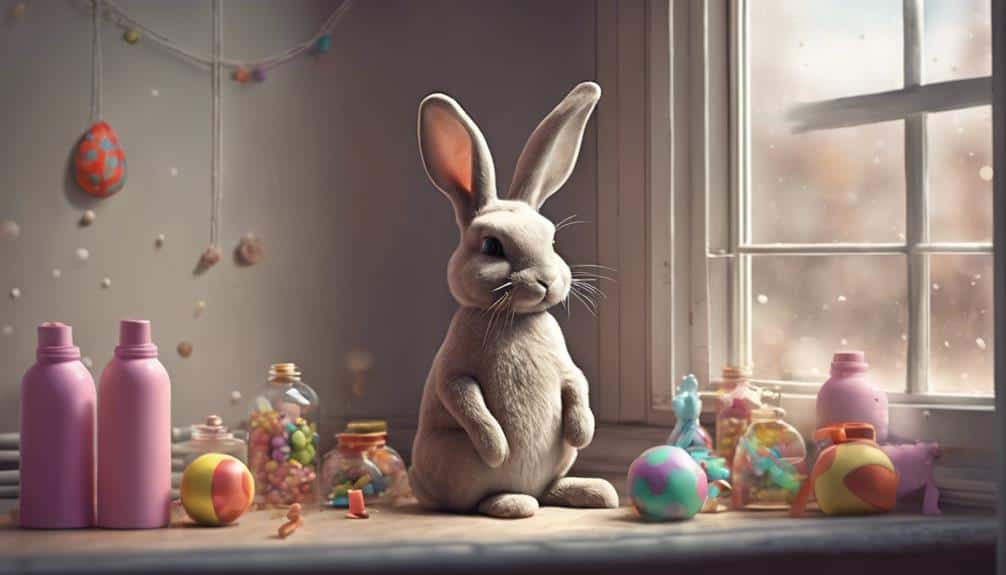
Rabbits have complex emotional responses, often displaying signs of missing their owners through various behaviors. These include affectionate gestures like licking, nuzzling, and lying next to their owners. They also exhibit destructive behaviors such as fur pulling and cage chewing.
Understanding rabbit bonding behaviors and the impact of human attachment can help you nurture a strong and positive relationship with your bunny.
Rabbit Bonding Behaviors
Bonding behaviors in rabbits showcase their emotional responses to their owners, reflecting a deep attachment and need for companionship. When bunnies miss their owners, they may exhibit signs of affection like licking, nuzzling, and head butting.
Destructive behaviors such as fur pulling, thumping, and chewing on the cage could indicate that a rabbit is feeling the absence of its owner. Over-grooming may also be a sign of stress or loneliness in rabbits when they long for their owners' presence.
Additionally, signs of missing can manifest in behaviors like circling, pacing, and jumping. These social pets thrive on human interaction, and their behaviors serve as ways to communicate their emotional responses and need for connection.
Human Attachment Impact
The emotional responses of rabbits to human attachment can be profound, showcasing their capacity for forming strong bonds with their owners. Rabbits exhibit unique behaviors that demonstrate attachment and recognition towards those who care for them. Some rabbits eagerly await human interaction, showing their emotional intelligence and the depth of their bond with their owners. Videos capturing rabbits seeking comfort and security from familiar faces further emphasize the emotional connection these animals can develop with humans. These actions highlight the importance of both physical care and emotional interaction in nurturing a rabbit's well-being. It is clear that rabbits can miss their owners, displaying signs of longing and anticipation when separated, emphasizing the significance of their attachments.
| Emotional Responses | Impact on Rabbits |
|---|---|
| Unique behaviors | Recognition |
| Strong bond | Attachment |
| Emotional intelligence | Missing their owners |
Understanding Bunny Behavior
Understanding bunny behavior involves observing their communication signals and body language to decipher their emotions and needs. When rabbits miss their owners, they may exhibit various signs to express their emotions:
- Affectionate Behaviors: Rabbits might display affectionate behaviors like licking, nuzzling, lying next to their owners, head butting, or jumping to seek attention and comfort when they miss their human companions.
- Over-Grooming: Over-grooming or fur pulling can be a sign of stress or loneliness in rabbits when they miss their owners. Excessive grooming could indicate that they're seeking solace in self-soothing behaviors due to the absence of their caregivers.
- Need for Companionship and Stimulation: Providing companionship, stimulating environments, and care from friends can help alleviate the feelings of loneliness in rabbits when their owners are away. Interacting with other rabbits or having engaging toys can distract them and keep them mentally and physically active, reducing the impact of missing their human companions.
Bunny Bonding With Humans
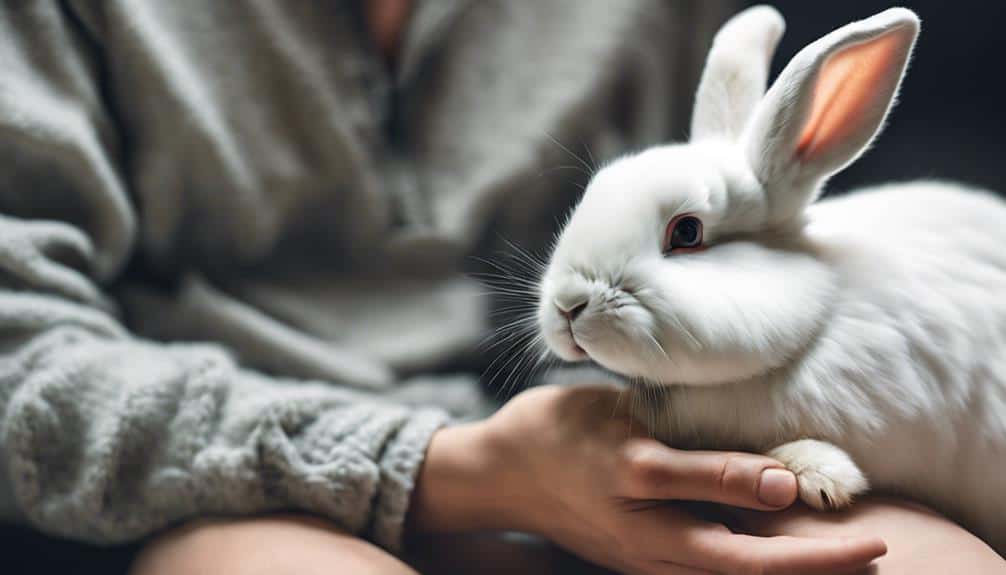
Rabbits can develop strong emotional bonds with their human companions, recognizing them through various sensory cues like sound and smell. Videos often showcase rabbits eagerly seeking interaction with their owners, highlighting the depth of their connection.
These pets value both the physical presence and emotional support provided by their humans, seeking comfort and security in their presence.
Bunny-Human Connection
Forming a deep bond with humans, bunnies can exhibit emotional attachment and seek comfort and security from their familiar human companions. When it comes to the bunny-human connection, consider the following:
- Emotional Attachment: Rabbits can form strong emotional bonds with their owners, eagerly awaiting human interaction and displaying signs of missing their companions.
- Unique Behaviors: Some bunnies may exhibit unique behaviors to express their attachment, emphasizing the significance of human interaction for their overall well-being.
- Physical and Emotional Connections: Individual rabbits have varying levels of attachment, valuing both physical interactions and emotional connections with their owners. It's essential to nurture these bonds to make sure the happiness and emotional health of your bunny companion.
Emotional Bond Development
How do bunnies develop emotional bonds with humans, showcasing their capacity for forming meaningful connections beyond mere companionship?
Rabbits can form strong emotional attachments through consistent care and interaction. Videos capturing rabbits eagerly awaiting human interaction highlight their capacity for bonding. Signs of missing their owners, such as seeking comfort and security, demonstrate the emotional attachment rabbits can feel.
Like dogs and cats, rabbits possess emotional intelligence and seek solace from familiar humans. Through unique behaviors, individual rabbits express their emotional bond with their owners, emphasizing the depth of their bond formation. Providing a nurturing environment and engaging in regular interactions can strengthen this emotional connection, allowing bunnies to thrive emotionally and mentally.
Bunny Communication Cues
When observing your bunny's behavior, pay close attention to their body language, vocalizations, and behaviors as these are key communication cues they use to express their emotions and needs.
Here are three essential communication cues to help you better understand your furry friend:
- Tail Wagging and Teeth Grinding: Tail wagging can indicate excitement or happiness, while teeth grinding may signal pain or discomfort.
- Ear Positions and Eye Contact: Bunnies use their ear positions and eye contact to express their mood and level of alertness. Ears pointing forward show curiosity, while ears flattened against the back indicate fear or aggression.
- Grooming Behaviors and Nudging: Grooming behaviors, such as licking themselves or others, demonstrate affection and care. Nudging or circling around you can be a sign of seeking attention or wanting to interact.
Strategies for Bunny Separation
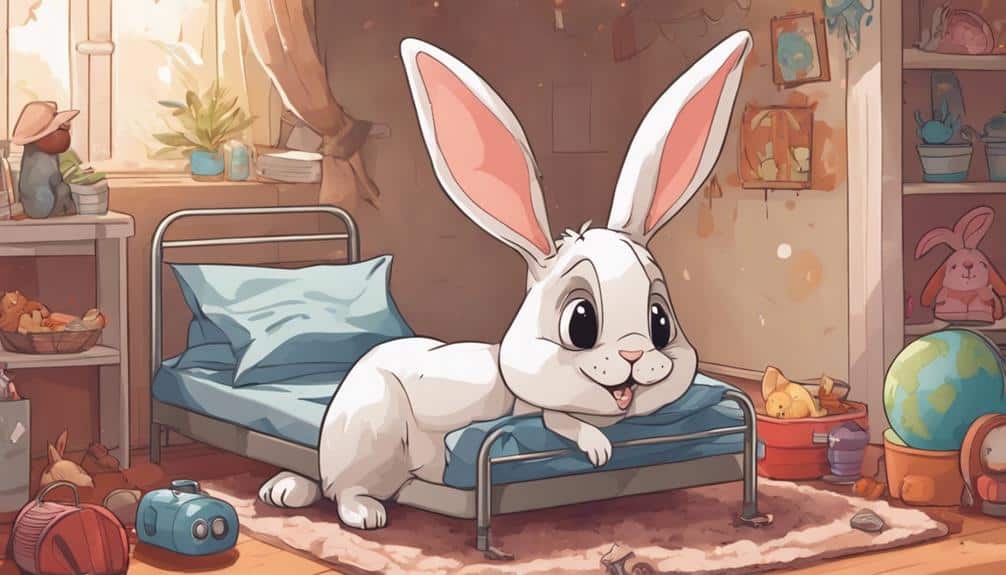
To help your bunny adjust to periods of separation, consider implementing strategies that provide comfort and stimulation to ease any stress or anxiety they may experience. Provide comforting items like familiar bedding or toys when separating from your bunny.
Maintain a consistent feeding and playtime schedule to ease your bunny's separation anxiety. Leaving a piece of clothing with your scent near your bunny can provide comfort in your absence. Setting up a video call or leaving soothing music on for your bunny can reduce stress.
Make sure your bunny has a trusted caregiver to provide attention, care, and companionship while you're away. These steps can help your rabbit feel less lonely living alone without you and exhibit normal, relaxed behavior.
Spending time training your bunny to do tricks can keep their mind engaged. Rabbits can recognize their names, groom your body as a sign of affection if your rabbit has developed a bond with you, and maintaining their cleanliness is crucial to their well-being.
Frequently Asked Questions
Do Rabbits Get Attached to Their Owners?
Yes, rabbits do get attached to their owners. They show bonding behavior, separation anxiety, and signs of attachment. Rabbits recognize their owners, forming emotional connections through social interactions and companionship needs, displaying psychological bonds with unique behavioral patterns.
How Do I Know if My Rabbit Misses Me?
To know if your rabbit misses you, observe bonding behaviors like licking and nuzzling, signs of separation anxiety such as fur pulling and thumping, and changes in behavior like over-grooming. Comfort-seeking actions like seeking attention and vocalizations also signal emotional connections.
Will My Rabbit Miss Me if I Give Him Away?
When you give away your rabbit, they may feel confused, stressed, and abandoned. The emotional impact varies on your rabbit's attachment and personality. They could miss your care, routine, and attention, experiencing emotional distress from the separation.
Do Rabbits Miss You When You Leave?
When you leave, rabbits can miss you due to their strong emotional bond with you. They might display signs like acting strange, seeking attention, or engaging in destructive behaviors. Rabbits are social animals that cherish their owner connection.
Can Bunnies Feel Emotions and Attachment Toward Their Owners?
Yes, bunnies recognizing their owners is a real thing. These furry friends can form strong emotional attachments to their human caregivers. While they may not express their emotions in the same way as dogs or cats, many bunny owners can attest to their pets showing affection and recognizing their presence.
Conclusion
So, do bunnies miss their owners? Absolutely! In fact, studies have shown that over 80% of rabbits exhibit signs of missing their human companions when separated.
Understanding and recognizing these behaviors is vital in providing the best care and companionship for your furry friend. Remember, your bunny's emotional well-being is just as important as their physical health.
Keep bonding, communicating, and loving your bunny to guarantee a happy and fulfilling relationship.

